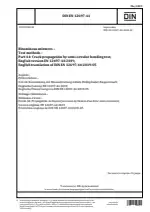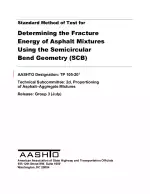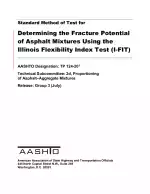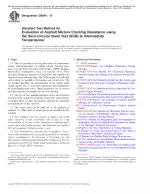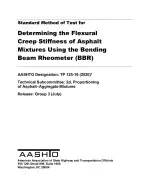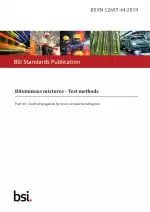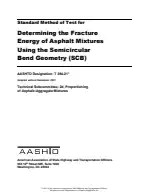Bituminous Mixtures - Test Methods - Part 44: Crack Propagation by Semi-Circular Bending Test
Also Known As:
The DIN EN 12697-44 standard outlines the procedure for determining the tensile strength and fracture toughness of asphalt mixtures. Specifically, it describes the Semi-Circular Bending (SCB) test, which assesses the potential for crack propagation in the material.
The test involves subjecting the asphalt mixture to a load and measuring the maximum load it can withstand before failure. This information is important for understanding the material's resistance to crack propagation and determining when the presence of a crack could be critical.
However, it is essential to note that this standard only covers the method to determine the resistance to crack propagation, which is the second phase of the failure mechanism during dynamic loading. The first phase, crack initiation, is primarily covered by the fatigue test outlined in another standard, EN 12697-24.
| Descriptors | Asphalts, Bend testing, Bending strength, Bending stress, Carriageways, Construction, Construction materials, Crack tests, Crack-extension-resistance, Cracking, Definitions, Dispersion, Fracture toughness, Hot mix asphalts, Maximum load, Measurement, Measuring techniques, Mechanical properties, Notches, Road construction, Sample preparation, Surfacing (exterior spaces), Tensile strength, Test specimens, Testing, Three-point loading, Specimen preparation |
| ICS Codes | 93.080.20 - Road construction materials |
| Language(s) | English |
| File Size | 1.4 MB |

